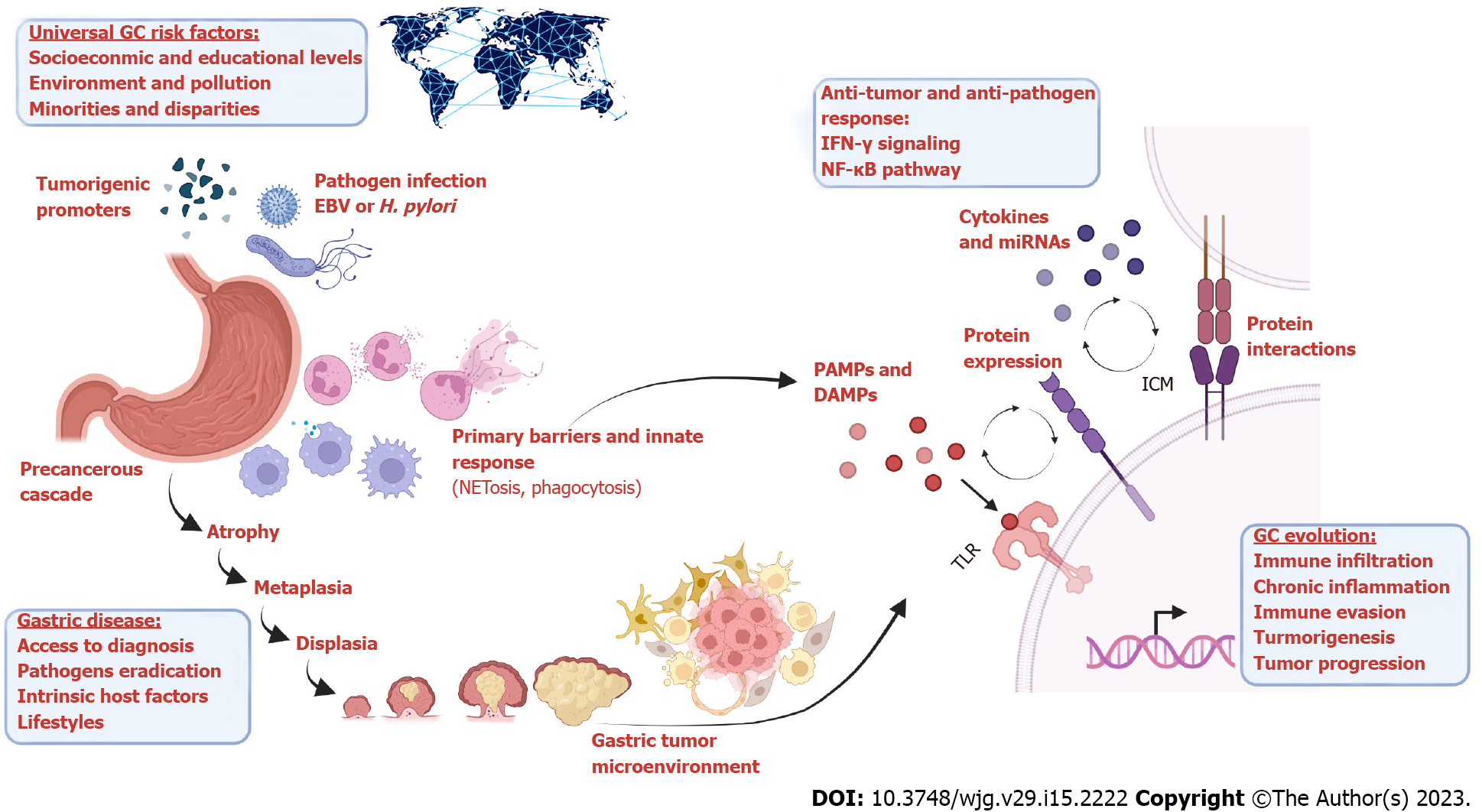Copyright
©The Author(s) 2023.
World J Gastroenterol. Apr 21, 2023; 29(15): 2222-2240
Published online Apr 21, 2023. doi: 10.3748/wjg.v29.i15.2222
Published online Apr 21, 2023. doi: 10.3748/wjg.v29.i15.2222
Figure 1 Graphical abstract.
Intersections between innate immune response and gastric cancer (GC) development is driven by common mediators, such as molecular pathways [nuclear factor-kappa B (NF-κB) and interferon-gamma (IFN-γ)], cellular processes (neutrophil and myeloid cells activation), and activators/inducers [pathogen-associated molecular patterns (PAMPs), damage-associated molecular patterns (DAMPs), tumor-antigens]. However, universal risk factors are identified affecting globally to any human being, which depending on extrinsic and intrinsic host factors might facilitate the progression of the precancerous cascade to GC. This image is created in BioRender.com. EBV: Epstein-Barr virus; H. pylori: Helicobacter pylori; ICM: Immune checkpoint molecule; TLR: Toll-like receptor.
- Citation: Villarroel-Espindola F, Ejsmentewicz T, Gonzalez-Stegmaier R, Jorquera RA, Salinas E. Intersections between innate immune response and gastric cancer development. World J Gastroenterol 2023; 29(15): 2222-2240
- URL: https://www.wjgnet.com/1007-9327/full/v29/i15/2222.htm
- DOI: https://dx.doi.org/10.3748/wjg.v29.i15.2222









